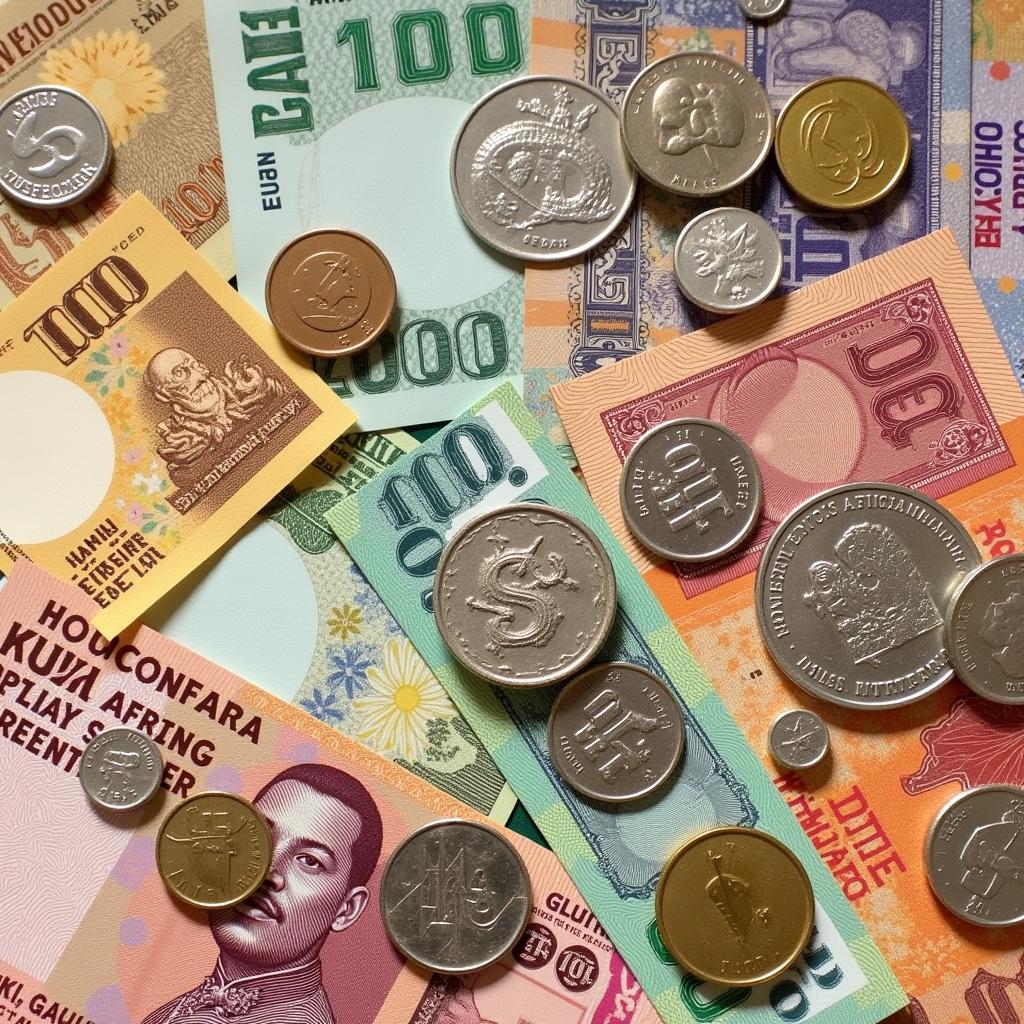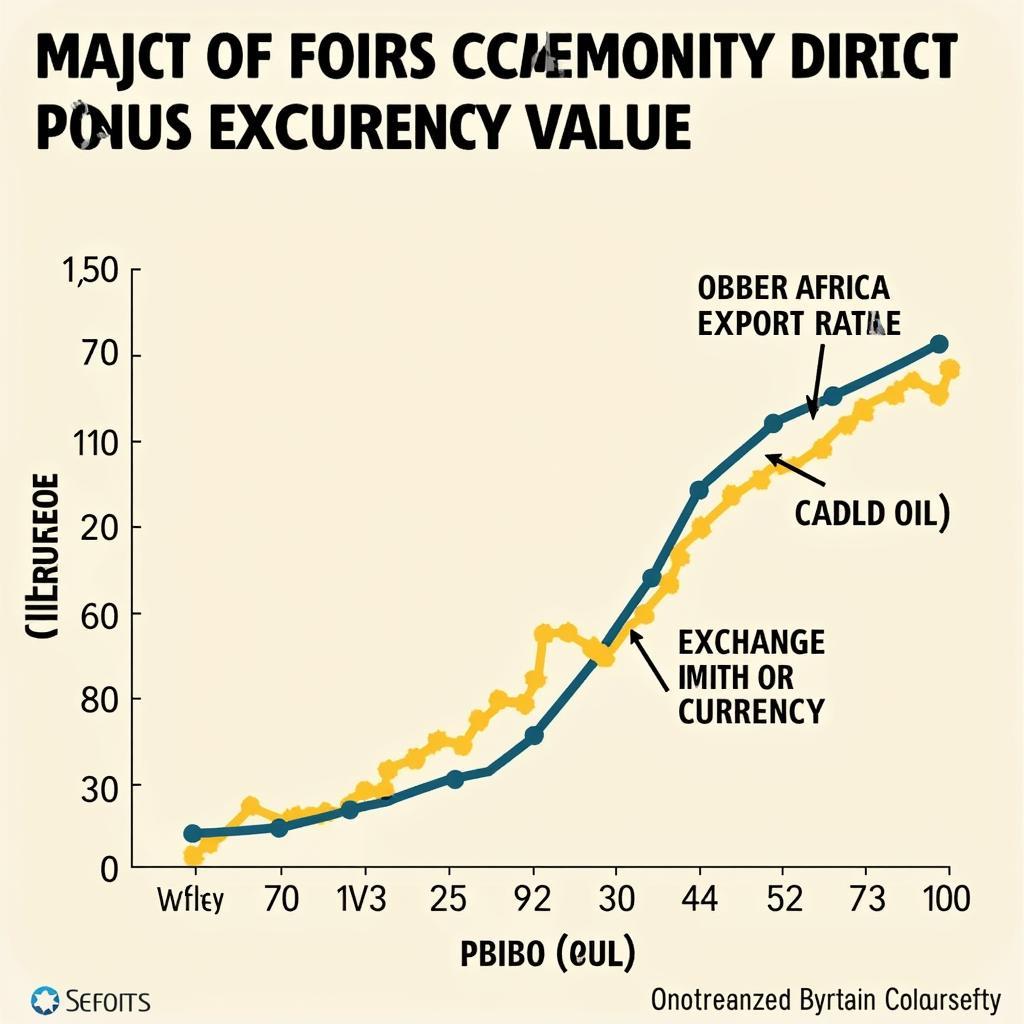Navigating African Currency Exchange: A Comprehensive Guide
Understanding African Currency Exchange is crucial for anyone doing business with or traveling to the continent. With 54 countries and a diverse range of economic landscapes, navigating the world of African currencies can feel like an adventure in itself. This guide aims to shed light on the intricacies of African currency exchange, providing you with the knowledge to make informed decisions.
The Diversity of African Currencies
Africa boasts a wide array of currencies, each with its own history and value. While some countries have adopted single currencies, like the West African CFA franc used by eight West African nations, others maintain their own unique monetary systems. This diversity reflects the continent’s rich history and varied colonial past.
 African Currency Variety
African Currency Variety
Factors Influencing Exchange Rates
Just like any other global currency, African currencies are subject to fluctuations in the global market. Understanding the factors that contribute to these changes is essential for making informed financial decisions.
Economic Performance
The economic health of a country plays a pivotal role in determining the strength of its currency. Factors like GDP growth, inflation rates, and political stability all influence investor confidence, directly impacting exchange rates.
Commodity Prices
Many African economies heavily rely on the export of raw materials like oil, gold, and agricultural products. Fluctuations in global commodity prices significantly impact the currencies of these nations.
 African Commodities and Currency Exchange
African Commodities and Currency Exchange
Global Events
International events, such as economic crises or political unrest in other parts of the world, can create ripples that affect African currencies. Investors often seek safe-haven assets during times of uncertainty, impacting currency markets globally.
Tips for Exchanging Currency in Africa
Navigating the exchange process efficiently is key to a smooth experience. Here are some practical tips:
- Research Before You Go: Familiarize yourself with the local currency and its approximate exchange rate to your home currency.
- Avoid Airport Exchanges: Airports often have less favorable exchange rates due to convenience fees.
- Compare Rates: Check with various banks and exchange bureaus to secure the best possible rate.
- ATMs and Credit Cards: ATMs are generally a reliable source for local currency. Inform your bank about your travel plans to avoid any issues with card usage abroad.
- Negotiate: Don’t hesitate to negotiate exchange rates, especially for larger transactions.
The Future of African Currency
The landscape of African currency is ever-evolving. Discussions about regional currency unions and the potential of digital currencies are gaining traction. As the continent continues to develop and integrate into the global economy, we can expect further shifts and innovations in the realm of African currency exchange.
Conclusion
Navigating African currency exchange might seem daunting at first, but with proper understanding and preparation, it becomes a manageable aspect of your African experience. By staying informed about the factors influencing exchange rates and following practical tips, you can ensure smooth financial transactions throughout your journey. Whether you’re a seasoned investor or a first-time traveler, embracing the world of African currencies opens doors to a continent rich in opportunity and cultural diversity.
Do you have any specific questions about African currency exchange? Here are some frequently asked questions that might help:
FAQs
1. What is the strongest currency in Africa?
The strongest currency in Africa is currently the Libyan Dinar.
2. Is US Dollar widely accepted in Africa?
While the US Dollar is widely recognized, it’s not universally accepted as legal tender. It’s best to exchange currency for local transactions.
3. Can I use my credit card everywhere in Africa?
Credit card acceptance varies across the continent. Major cities and tourist areas generally have better acceptance rates.
4. Where can I find the best exchange rates in Africa?
Banks and authorized currency exchange bureaus typically offer the most competitive rates compared to airports or hotels.
5. Are there any restrictions on exchanging currency in Africa?
Currency regulations vary from country to country. It’s crucial to research specific guidelines before your trip.
For further assistance or information regarding your specific travel plans or business ventures in Africa, please don’t hesitate to reach out to our team. We’re here to help you navigate the intricacies of African currency exchange and ensure a seamless experience.
Contact us:
Phone: +255768904061
Email: kaka.mag@gmail.com
Address: Mbarali DC Mawindi, Kangaga, Tanzania
We have a dedicated customer support team available 24/7 to assist you with any inquiries you may have.